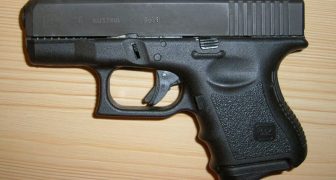This is a guest post by Andrew Betts
What is barrier blind and why does it matter?
Selecting defense ammunition can be a daunting task. Aside from the suspect “advice” you might receive from the smelly hill folk who like to hang out at gun shops and share their wisdom, manufacturers sometimes make some literally incredible claims.
To make it worse, there are very real attributes of ammunition with which you may be unfamiliar. One of those attributes that has been tossed around quite a lot lately is the ability of a projectile to be barrier blind.
The common misconception is that it means that refers to a projectile’s ability to pass through a barrier. What “barrier blind” really refers to is the ability of a projectile to perform in roughly the same way after passing through a barrier as it would if it did not have to pass through that barrier. It is “blind” to the barrier in the sense that it acts about the same whether or not it has to pass through it. Here is an example:
Despite passing through a windshield, both projectiles were able to still expand. This is notable because, although we think of glass as fragile, it is also very hard. Hard materials such as glass can easily deform a bullet and some bullets will fail to expand and/or fragment appropriately if they have been deformed before striking tissue.
In this case, the bullets performed properly. They expanded well and penetrated adequately, so they would be considered to be barrier blind. The performance was not identical to the bare gel performance, but it does not need to be identical. It simply needs to be similar and meet some of the same benchmarks of expansion, penetration, and weight retention. Here are the bare gel tests of those same bullets for comparison:
Now that you know what it means for a projectile to be barrier blind, how important is that for home defense? It is a perfectly sound argument that the average homeowner is unlikely to face the necessity of shooting through auto glass, sheet metal, and wood. From that perspective, whether a projectile is barrier blind is of little importance. It is always possible, though, that a fight develops into something unusual.
From a more pragmatic perspective, bullets that are barrier blind are also usually some of the very best defense bullets on the market in other metrics as well. An immense degree of research and development has gone into the Federal Fusion in the test above or the Speer Gold Dot or the Barnes TSX.
These bullets are not just barrier blind, they are engineered to perform at a wide range of velocities and yes, they are designed to function properly when they encounter heavy clothing, drywall, bone, wood, or even auto glass or sheet metal.Perhaps the ability to perform well after passing through a windshield is not a high priority for you, but it is indicative of a quality bullet.
Andrew Betts served with the Arizona National Guard for over 12 years, including a tour to Afghanistan. Visit his YouTube Channel for more great shooting information.


Speak Your Mind